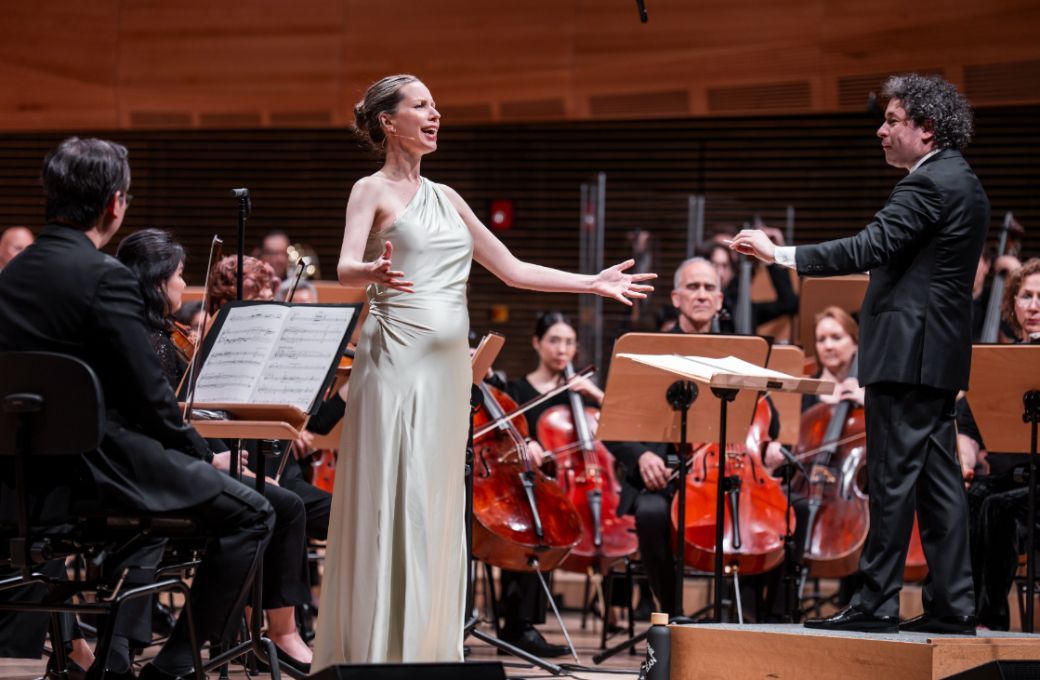The awakening of Lincoln Center in recent years has been something to behold. If the pendulum swung a little far, so be it. Pendulums have a way of swinging back again, and mid 2025 shows a level of balance in programming has been attained. In December, David Lang, Missy Mazzoli and Kate Soper were named New York Philharmonic Kravis Emerging Composers, an award which comes with a commissioned performance. It’s notable that two of the three were women under 50, but at least as commendable that the award went to three composers doing such original and evocative work.

Orpheus Orchestra Opus Onus, Soper’s commissioned work, received its premiere on Thursday at Lincoln Center’s David Geffen Hall, conducted by Gustavo Dudamel, on a program that included Stravinsky’s Symphony in Three Movements and Philip Glass’ Symphony no. 11. The 35-minute monodrama uses the famed musician of Greek myth as a guide for an exposition on the role of the orchestra and music itself.
Soper is a literary writer and can be quite a literal composer. She also has the ideas and ambition to make the confluence work. She can also be a bit precious, but she could sell a lyre to the devil or the idea of magic to a packed house of New Yorkers. Soper performed the role of Orpheus, spoken and sung, addressing the audience directly about the nature of music, and the NY Phil delivered the goods with orchestral quotations to underscore her points. It called to mind the orchestra demonstration in Disney's Fantasia but the intensity of focus carried the performance. No one has ever heard the music that was in Orpheus’ head, but when we finally heard it as Soper imagined it, it was simple and lovely and couldn’t have been anything but.
The first half opened with Stravinsky’s Symphony in Three Movements, making for a strange pairing. The NY Phil premiered the piece, which the composer termed his “war symphony”, in 1946. It seemed an unlikely choice but was wonderfully performed, beginning with a bold march then a soft reverie then strident attacks, ultimately finding an unexpected grace and becoming an unexpected delight. The performance resounded with restraint, more military exercise than battle until a remarkable climax of bombast. Dudamel maintained a sprightly tempo but brought it to an elegant beauty, stepping slowly all the while.
After the interval, we were treated to Philip Glass’ Symphony no. 11 (2016), with the composer in attendance. It’s easy to feel like one knows what to expect from Glass, and with good reason, but there were pleasant surprises in store, from the initial and intriguing piano figure to the pulsation of reeds to a deep brass resonance and an unexpected snare roll, all before the so familiar, sliding strings. A small section of percussionists slowly gained ground, and occupied entirely the first part of the final movement. But the real break in formula came from overt, if brief statements, of sentiment, allowing the orchestra and conductor the fullness of lush, sweeping gestures and dramatic shifts in dynamic. Dudamel seemed to relish in it.


